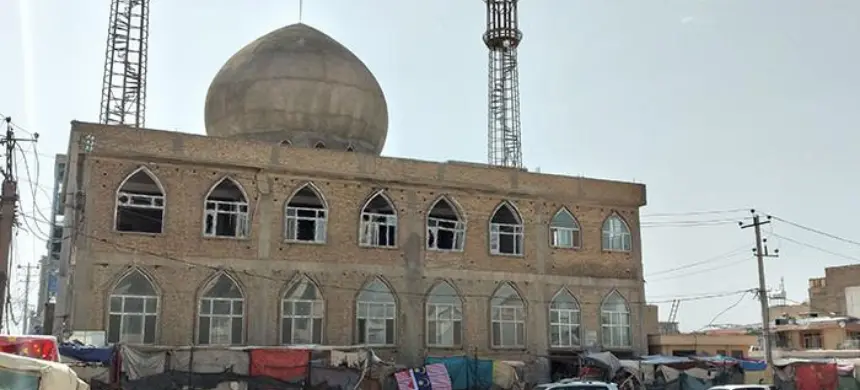The militant Islamic State (IS) group claimed responsibility for an assault on an Imambargah in Oman on Tuesday, which resulted in the deaths of at least nine people, including three attackers. This incident marks a rare security breach in the oil-producing Gulf state. Among the deceased were four Pakistanis, an Indian, and a police officer, as confirmed by Pakistani, Indian, and Omani officials. The Oman police reported that 28 people from various nationalities were wounded, including security personnel.
The attack commenced on Monday evening at the Ali bin Abi Talib mosque in the Wadi al-Kabir neighborhood of Muscat, Oman’s capital. The mosque is situated 500 meters from an international school, near a skateboard park, and less than 10 kilometers from several five-star beach resorts. Such violence is highly unusual in the wealthy, Sunni-dominated Gulf states, typically known for their security and stability. This incident has sparked fears that IS, which has operated clandestinely since being largely crushed by a US-led coalition in 2017, may be attempting to resurge in new territories.
IS stated that three of its “suicide attackers” targeted a gathering in Wadi al-Kabir, fired on worshippers at the mosque on Monday evening, and exchanged gunfire with Omani security forces until morning. They claimed that 30 people and five Omani security personnel had been killed in the attack. The group also released a video of the attack on its Telegram site. Another video shared on social media and verified by Reuters depicted people fleeing from the mosque while gunfire was heard.
Read More: Eight soldiers were martyred as a terrorist attack on Bannu Cantonment was foiled
Omani authorities have not yet identified a motive for the attack or disclosed any arrests. The identities of the attackers have also not been released.A local source described the mosque, also known as Imam Ali mosque, as a Shia place of worship in Ibadi-ruled Oman, which has a small but influential Shia minority. The Pakistani Foreign Ministry labeled the incident a “terrorist” attack and reported that 30 survivors were receiving hospital treatment.
The attack coincided with the beginning of Ashura, an annual period of mourning observed by Shias to commemorate the 7th-century death of Imam Hussain (RA), a grandson of the Prophet Muhammad (PBUH). While the observation of Ashura can sometimes lead to sectarian tensions in some Middle Eastern countries, this has not typically been the case in Oman, where the Ibadi sect promotes tolerance.
Most Omanis practice Sunni Islam or adhere to the Ibadi faith, which shares many similarities with mainstream Sunni Islam.ambassador to Muscat, Imran Ali, described the event as unprecedented in Oman’s history. He visited victims in the hospital and reported that most of the 30 injured were being treated for gunshot wounds, while others had sustained injuries while fleeing the attack, including being crushed in a stampede.
In recent months, IS has claimed responsibility for several high-profile attacks, including one that killed more than 140 people at a concert hall near Moscow in March and two explosions in Iran in January that killed nearly 100. These attacks have heightened fears of a resurgence of the group, which is believed to operate through autonomous cells with clandestine leadership.











